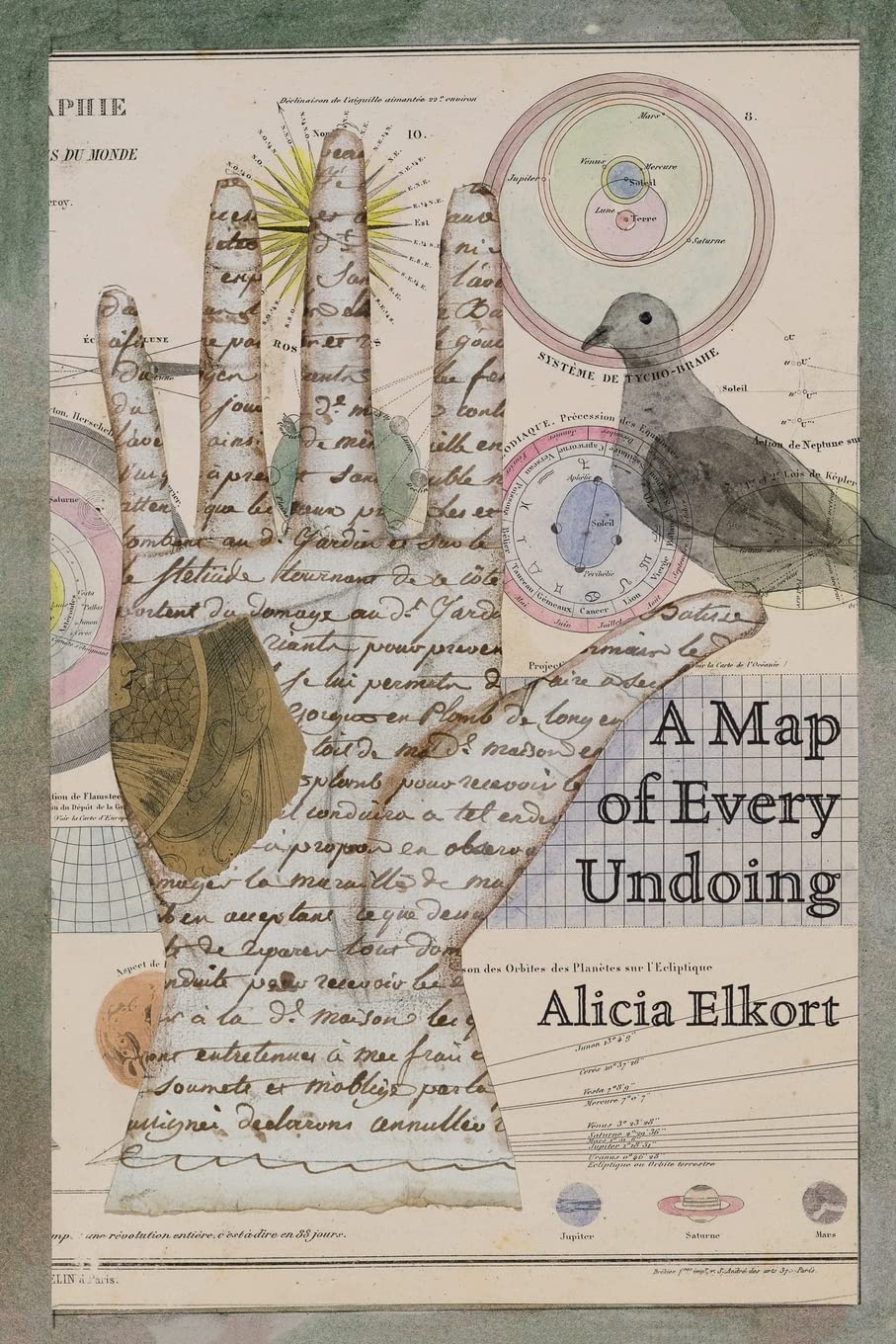In Alicia Elkort’s world a child wishes for survival and, A Map of Every Undoing, does the hard work of delivering that gift. This collection is a lifeline to the present but also an evocation back in time offering comfort to the brutalized body of youth. Elkort looks at familiar tropes of American life to expose the often-unspoken horrors of girlhood experience. These poems do not linger or wallow, rather their forms are easy and welcoming enough to give the reader room to navigate through treacherous scenes. With this method one also begins to see the possibilities of healing and the worth of re-writing one’s narrative so that there can be, at least, a happier ending.
The arc of the book echoes the folklore and mythos that guide many during childhood and adolescence. Characters like Medusa, Mary and her lambs appear alongside others, and the primordial forest where all these figures exist, is familiar to readers. Yet this is a deeply personal narrative. Elkort implements and bridges the raw and bold energy of confessional poetry with the balm of the spiritual and natural world.
The opening poem, “In Praise of Broken Sidewalks,” is reminiscent of LoVerne Brown’s iconic poem “A Meeting of Mavericks.” Though in Elkort’s poem when the pavement blooms the speaker declares:
Now I accept your jagged dandelion
flowers, taken root in the detritus & today
we’ll worship edges, you too
are only a guest in this world—
It is this sense of a collaborative and persistent beauty alongside an acceptance of the boundaries of our temporal reality that provide the speaker and reader with solace. This tender comparison between the speaker and the dandelion, both “only […] guest[s] in this world,” is the kind of sweetness and understanding never provided to the speaker’s younger self. Instead, the speaker must herself take a hard look at the world around her—how sister, mother, and grandmother have endured—in order to begin gleaning the honey that life also has to offer.
Elkort’s speaker must measure everything in the context of the terrible harm done to them and the lack of support and comfort offered in the wake of such crime. In the poem “I am fashioned from a gourd,” the speaker is shaped by their environment. This list poem helps the reader see the speaker more clearly: daughter of Russian immigrant Jewish parents displaced by WWII. In poems like these that adhere to a realistic point of view we understand this is not a family with much power. The vulnerability that comes with immigrant status, with being working class, with girlhood—all spills over into the mouth, mind, and body of the reader. It is this understanding that amplifies previous lines in the book, that leave the reader with a taste of “Can you pour fear into a glass?/ Shatter it against the wall?”
In the poem “Medusa,” we see the speaker able to acknowledge her own experience through the lens of this well-known story. The power of gossip, the perils of patriarchy, and the demonization of female sexuality are all on blast in this poem:
[…] every time a person
asks what was she wearing was that vodka
she was drinking who does she think she is
to turn so much beauty & not owned by a man?
Channa’s sisters call her a liar they called my
beautiful friend a wicked liar to ruin the family
name but her father raped her & sisters
abandoned her on an island named Grief
By re-telling Medusa’s story Elkort’s speaker can rage through the pain of her experience, and this ability to voice, ultimately empowers her to knowingly and frankly live in her pain. It is in this wisdom that shame is shed, and the speaker can move on in her own grief.
With an appreciation for both the wounding and the wonderful, we eventually find a balancing in the pages of, A Map of Every Undoing. When moments of whimsy can be enjoyed the acute pain of trauma is deescalated and we see the speaker heal. These little joyous lines are often a blend of real and ordinary daily life, revealing a more extraordinary appreciation for the world that we inhabit:
As the porridge warmed
I went outside to look
at the sky.
When I looked up
I saw a cloud shaped
like a marshmallow &
I opened my mouth.
This delicious image hangs in the mouth of the reader.
A Map of Every Undoing is an important text for many reasons. One could simply study the techniques implemented and the use of forms by the author, especially the different apparitions of the prose poem. The way folklore and myth are brought forth to meet a modern need in storytelling is also phenomenal. I find though that the true reward in reading this book is emotional. It is the space to embody the underlying misogyny that we all encounter, whether we are the bullies or the bullied, we are all shaped by this dynamic. With the caring salve of Elkort’s words though, we may dare to find our own dandelions, and the possibilities in wishing for a kinder world.
*

